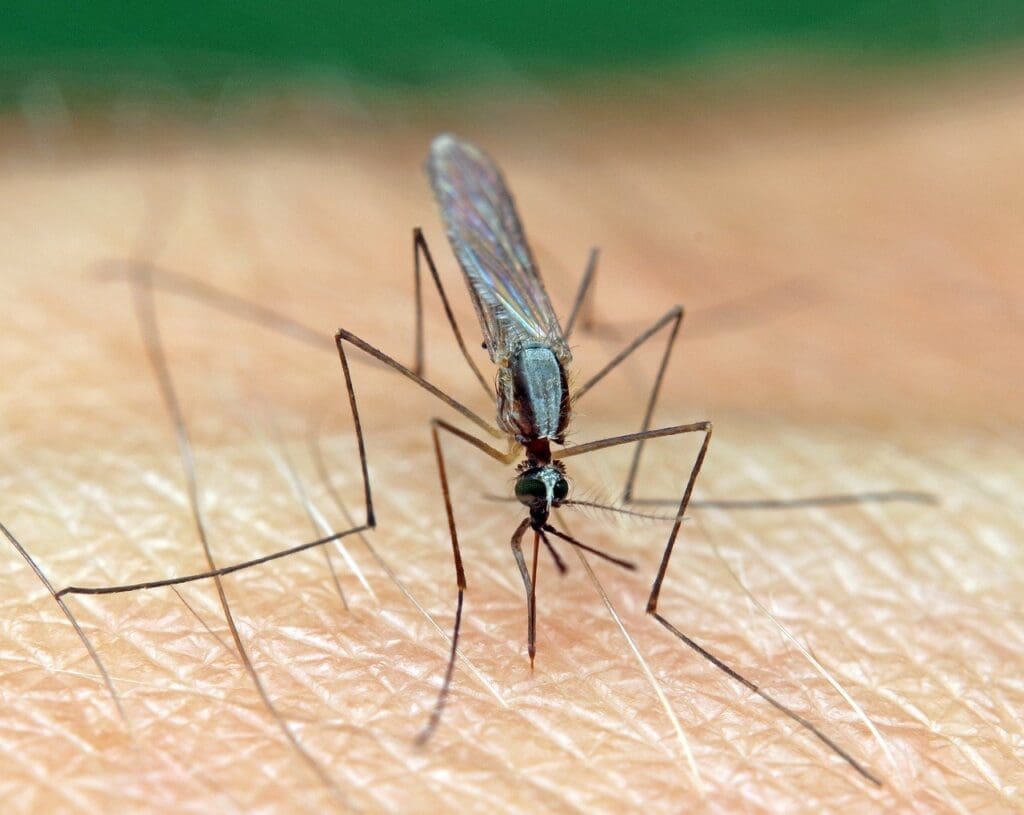By Cindy Mulla & Kaylyn Pearce
Did you know that Panama City Beach, Florida has approximately 50 distinct species of mosquitoes? Not all species bite people, and only a select few are capable of transmitting disease to humans. One of our big nuisance species is the Aedes albopictus, commonly referred to as the Asian Tiger Mosquito. It is an invasive species that came to the United States from Southeast Asia. It is common around households, breeds in artificial containers, and is an aggressive biter. It is a vector of diseases such as Dengue, Zika and Chikungunya virus. Beach Mosquito Control District works diligently to suppress mosquitoes, like the Asian Tiger Mosquito! A few of the surveillance tools we use to monitor mosquito populations include mosquito traps, a virus-testing machine, and sentinel chicken flocks.
 Most people are surprised to hear that we use chickens as another method to monitor mosquito-borne diseases. They’re like a canary in a coal mine for illness. The two main diseases we monitor for are West Nile Virus (WNV) and Eastern Equine Encephalitis (EEE). Once a week we take blood samples from chickens that are strategically placed across our district, and we ship these samples to the State Laboratory. The test results will confirm if positive antibodies are present for mosquito-borne disease in the sentinel chicken flocks. This is a great tool to indicate when and where diseased mosquitoes are active in our district plus it allows our team to make quick and accurate decisions to treat the problem before it amplifies.
Most people are surprised to hear that we use chickens as another method to monitor mosquito-borne diseases. They’re like a canary in a coal mine for illness. The two main diseases we monitor for are West Nile Virus (WNV) and Eastern Equine Encephalitis (EEE). Once a week we take blood samples from chickens that are strategically placed across our district, and we ship these samples to the State Laboratory. The test results will confirm if positive antibodies are present for mosquito-borne disease in the sentinel chicken flocks. This is a great tool to indicate when and where diseased mosquitoes are active in our district plus it allows our team to make quick and accurate decisions to treat the problem before it amplifies.
Another component of our surveillance program is our mosquito traps. We have a total of 22 “primary” mosquito traps that we run twice a week and 13 “gravid” traps that are set once a week. A total of 55 traps are set each week! The purpose of primary traps is to collect a variety of mosquito species in different habitats. The gravid traps specifically monitor and target female mosquitoes that have already taken a blood meal. Once we collect the traps, the surveillance team then counts and identifies each of the mosquito species. After speciating the mosquito trap collection, we can run tests on the specific species we know are vectors of mosquito-borne disease to determine if we have any viral activity present in the area.
For any of your mosquito concerns or to place a service request, please contact Beach Mosquito Control District: at (850) 233-5030 or pcbeachmosquito.org. Your tax dollars are hard at work!























































